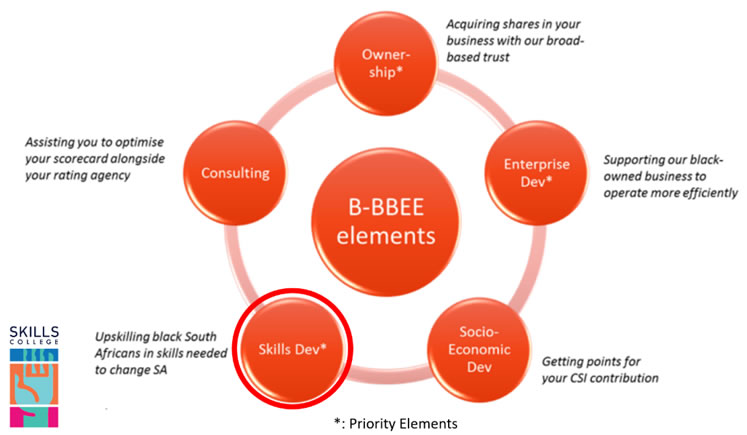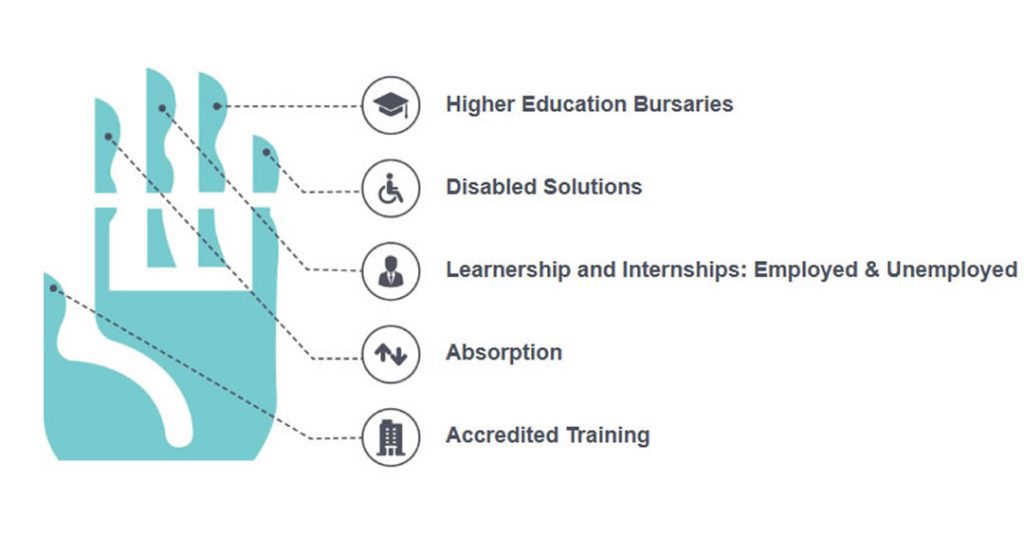Skills Development as B-BBEE Element
The Skills Development Expenditure element emphasizes the importance of enhancing the skills and capabilities of black individuals (previously disadvantaged groups in South Africa, including Black Africans, Coloureds, Indians, and others) through training and development initiatives
The Skills Development Expenditure element typically involves the following components:
Companies that invest more in the skills development of black employees will earn a higher number of B-BBEE points in this element, positively impacting their overall B-BBEE score. This, in turn, enhances their competitiveness in terms of business opportunities and contracts, especially when dealing with government entities and other organisations that prioritise B-BBEE compliance.
Skills Development as Priority Element
However, if a company does not meet the minimum level of Skills Development spend as a priority element on the South African B-BBEE scorecard, it can have several negative consequences:
- Penalties and Consequences: Not meeting the 40% sub-minimum, will lead to the company being discounted one level, meaning that the company will drop one level on its scorecard.
- Lower B-BBEE Score: The Skills Development element contributes to the overall B-BBEE score of a company. If a company falls short of the required spend, it will receive fewer points in this element, leading to a lower overall B-BBEE score. This can impact the company’s competitiveness when bidding for contracts or business opportunities, especially with government entities and other organisations that consider B-BBEE compliance in their decision-making processes.
- Reduced Access to Markets and Opportunities: Many government tenders, contracts, and business partnerships in South Africa give preference to companies with higher B-BBEE scores. Failing to meet the minimum Skills Development spend can limit a company’s access to these opportunities, potentially affecting its growth and revenue generation.
- Reputational Damage: Non-compliance with B-BBEE requirements can result in negative public perception. Companies that are seen as not contributing to transformation and empowerment goals might face reputational damage, which could impact their relationships with stakeholders, customers, and partners.
Skills College can Assist in Attaining a Full Score of 25/20 for Skills development Spend!
To avoid these negative outcomes, companies are encouraged to allocate the necessary resources to meet the minimum Skills Development spend required by the B-BBEE scorecard. This not only ensures compliance with regulations but also contributes to the broader goals of economic transformation and empowerment in South Africa. It’s important for companies to carefully plan and implement effective training and development programs to meet the Skills Development requirements and improve their B-BBEE scores.


